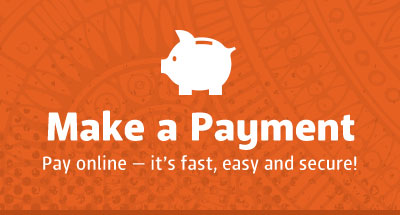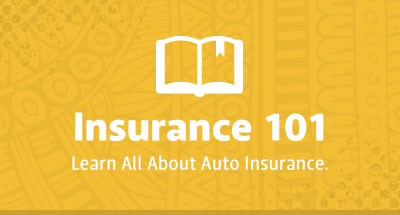What is Car Insurance?
Car insurance, or auto insurance, is an agreement between drivers and an insurance company, in which the drivers pay premiums for coverage that can help cover costs in case of covered accidents, damages, or liability claims.
It’s like a financial safety net against unexpected expenses resulting from these covered events involving your vehicle.
If you’re a driver in Illinois, the state requires you to have liability insurance. This type of auto insurance helps cover financial costs in case your vehicle hurts other people or damages their property.
This is only the minimum insurance required in Illinois, however. Some drivers opt for policies that will cover their vehicle’s repair costs, their own medical payments, roadside assistance, and other additional coverage options.
As you can see, there are different coverages available to Illinois drivers and vehicle owners. Illinois Vehicle Insurance Agency, LLC (Illinois Vehicle) understands this and works with multiple insurance carriers, offering various options for drivers looking to find budget-friendly car insurance.
Types of car insurance coverage available in Illinois
Let’s delve into the insurance options available to Illinois drivers so that you can make an informed choice when shopping around for auto insurance policies.
Liability coverage
If you get into a traffic accident in Illinois and cause injuries to another person or people, or damage another person’s property, liability insurance helps pay for these damages up to a certain limit.
Illinois requires vehicle owners to obtain liability insurance in order to register their vehicles. Your insurance company will provide you with a proof-of-insurance card that shows you carry the minimum required auto insurance.
In Illinois, the required liability coverage is referred to as 25/50/20. This means, your minimum auto insurance needs to cover:
- $25,000 for injuries or death to another person
- $50,000 total for injuries or death per accident
- $20,000 for damages to another person’s property
While this is the only type of insurance required by most states, including Illinois, it won’t help cover damages to your own vehicle in the case of an accident or events such as theft, vandalism, or weather-related damage.
To help cover these types of events, drivers opt for what is known as “full coverage.” “Full coverage” is a combination of the required liability coverage, collision coverage, and comprehensive coverage.
Collision coverage
What if you want a policy that helps pay to repair or replace your own vehicle in case of a covered accident? That’s what collision coverage is for.
For example, if there is a traffic accident and you are at fault, collision coverage may help pay to fix or replace your vehicle after you pay a deductible. A deductible is the amount you pay before the insurance policy kicks in and covers the remaining costs.
Comprehensive coverage
Comprehensive coverage helps pay for damages caused by unexpected events other than collision, such as:
- Theft and vandalism
- Falling trees
- Natural disasters such as tornadoes, floods, severe storms, etc.
- Fires
- Damage caused by animals
Uninsured/underinsured motorist coverage
Besides liability coverage, the state of Illinois also requires uninsured motorist coverage. If you get into a car accident and the other driver doesn’t have insurance, uninsured motorist coverage (UM) can help pay for the costs of injuries to you and your passengers.
Underinsured motorist (UIM) coverage helps in the case of an accident caused by another driver with not enough insurance. This coverage helps pay for the personal injury costs you incur that go beyond that driver’s insurance limits.
Underinsured motorist coverage is included if you purchase higher limits of uninsured motorist coverage than what is required.
Medical payments (MedPay)
MedPay, or medical payments coverage, may cover medical bills or funeral expenses (up to your policy limit) for you or your family if they are injured by another vehicle. Medical payments coverage is optional.
How car insurance works and what does it cover
Here's how car insurance works:
- You shop around and choose a policy that gives you the desired coverage and fits your budget. In Illinois, the minimum required insurance (liability coverage) will help pay for damages caused to other people or vehicles (up to a limit). Illinois also requires uninsured motorist coverage (UM). If you get into an accident with an at-fault driver who doesn't have insurance, UM coverage may help cover the cost of injuries to you and your passengers.
- You can add additional coverage options if you want to lessen the future financial impact of covered accidents or events.
- You pay a premium. The premium can be lowered if you choose to pay a higher deductible. Some insurance providers offer bundles when you choose additional coverage options.
- You file a claim: If you get into an accident, you need to notify your insurance company. An adjuster will examine the damage and estimate costs.
- Your insurance company helps with the costs after you pay the deductible. For example, if your deductible is $500, your policy will kick in after you pay this amount.
- Your premiums might change: If you have a traffic violation or are involved in an accident, your premiums may increase. Similarly, some insurance providers offer discounts for long-term customers or drivers with a good record.
Your coverage will depend on the policy options you decide to purchase. Auto insurance may reduce financial costs in the event of a claim, especially if you don’t have sufficient funds to cover these costs out of pocket.
Why you might need non-standard car insurance in Illinois
While liability coverage is required, it may not be enough. Without an insurance policy that offers you more coverage options, you may have to pay for your own vehicle repairs or replacement, medical bills, or other expenses in the case of an uncovered accident or event.
Illinois Vehicle works with various insurance carriers to offer diverse coverage options that may help cover additional costs. We also work with drivers who have non-standard needs such as:
- Foreign licenses
- A limited driving history
- SR-22 requirements
The cost of car insurance in Illinois
Different factors influence how much your insurance premium will be in Illinois, including:
- Your driving record: An experienced driver with a clean driving record will often pay less than a newer driver or those with traffic violations.
- Age and experience: Since young drivers tend to be more at risk of accidents and may have less experience, premiums for this age group may be higher.
- Your vehicle type: Some vehicles are more expensive to insure, including those with more powerful engines or costly parts.
- Location: Drivers in cities or counties with more traffic congestion and higher accident rates often pay higher premiums.
- Coverage level: More coverage will result in higher premiums, but also in lower out-of-pocket costs in the case of covered accidents or events.
Illinois Vehicle’s local auto insurance agencies can help you understand the options available to you and choose a policy that fits your budget.
Discounts and savings on car insurance with Illinois Vehicle
At Illinois Vehicle, we work with several insurance carriers offering various discounts you may be eligible for. These discounts include:
- Paid in full: Drivers who pay their policy’s premium upfront instead of monthly installments may qualify for this discount.
- Multi-vehicle discount: If you bundle two or more vehicles under one policy, you may be eligible for this discount.
- Good student discount: Students with a good academic record may qualify for lower rates.
- Proof of prior coverage discount: If you have a history of prior auto insurance before switching to us, you may qualify for a discount.
As you shop around for auto insurance quotes, ask about these discounts or others available to you to find a policy option that fits your budget.
Contact Illinois Vehicle for a free car insurance quote
Now you understand the legal requirements for auto insurance in Illinois, how different coverage options may help you reduce costs in the case of covered accidents, and some of the discounts that may be available to you.
If you’d like to get a personalized quote for a policy that suits your budget, call Illinois Vehicle at 630-581-4805, visit a store, or get a quote online.
Disclaimer:
This material is for general informational purposes only. Products, services, and discounts referenced herein are not available in all states or in all companies. All statements are subject to the terms, exclusions, and conditions of the applicable policy. In all instances, current policy contract language prevails. Coverage is subject to individual policyholders meeting the insurer's underwriting qualifications and state availability. Other terms, conditions and exclusions may apply.






